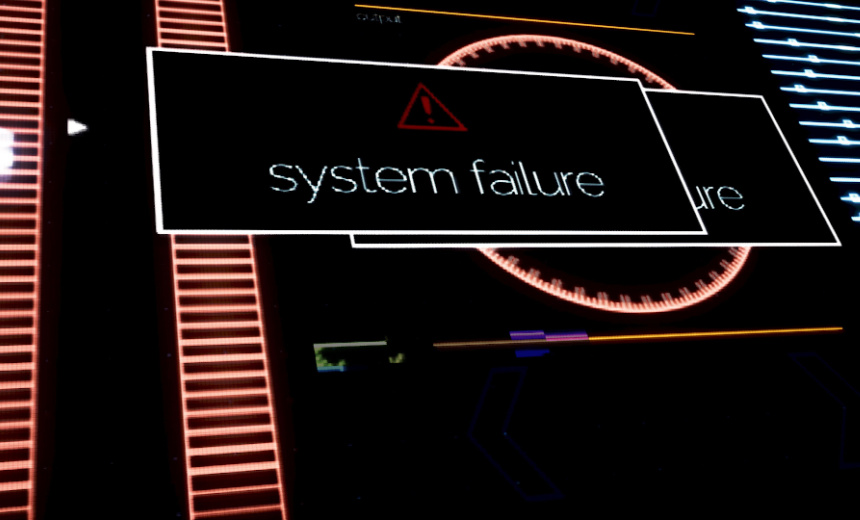Cybercrime,
Fraud Management & Cybercrime,
Incident & Breach Response
Also: Payment Card Theft Trends, Internet Archive Update

This week’s cybersecurity roundup reveals significant developments globally, highlighting the U.S. government’s actions to restrict bulk data transfers to China, alongside Visa’s warnings about a resurgence in payment card fraud. Additionally, the Internet Archive continues its recovery from a major cyber incident, while the Change Healthcare breach now affects 100 million individuals. Concerns also mount as Ukrainian cyber defenders combat malicious phishing campaigns, and the emergence of novel threats has been identified involving malicious virtual hard drive files.
U.S. Proposes Data Security Regulations to Mitigate Foreign Threats
The U.S. government has proposed new regulations aimed at limiting the bulk transfer of sensitive personal data to countries like China. This move follows a previous executive order aimed at safeguarding American data amid fears of foreign exploitation for intelligence or commercial purposes. The proposed guidelines will require data brokers involved in restricted transactions to comply with security mandates set by the Cybersecurity and Infrastructure Security Agency (CISA). Such mandates may include maintaining access audit logs and enforcing stringent identity management, which aligns with initial access tactics outlined in the MITRE ATT&CK framework.
Visa Reports Upsurge in Physical and Digital Fraud
In a recent threat report, Visa highlighted the resurgence of traditional credit card thefts, with fraudsters exploiting stolen data for online transactions, particularly involving gift cards. Additionally, the report notes a rise in “digital pickpocketing,” a tactic where thieves initiate payments wirelessly in crowded spaces. Such fraudulent activities indicate techniques related to credential access and exploitation of system vulnerabilities, echoing adversarial behaviors identified in the MITRE framework.
Internet Archive on the Road to Recovery After Cyberattacks
The Internet Archive is facing challenges in restoring its services following a significant denial-of-service attack and recent unauthorized access involving a stolen Zendesk token. The breach previously compromised the personal data of 31 million users, showcasing tactics associated with initial access and credential dumping in the MITRE ATT&CK framework. Operations are ongoing to stabilize the site while ensuring the integrity and security of user data.
Change Healthcare Ransomware Attack Affects 100 Million
A ransomware attack targeting Change Healthcare has now officially impacted 100 million individuals, a dramatic increase from the initial reporting of just 500. This attack has severely disrupted critical healthcare operations, including claims processing, illustrating the devastating impact of cyber threats on essential services. The attack highlights not only the risks posed to patient data but also the broader implications for healthcare infrastructure, reflecting tactics related to data breach and privilege escalation from the MITRE framework.
Ukrainian Authorities Combat New Phishing Threats
The Ukrainian Government Computer Emergency Response Team has reported a significant phishing campaign specifically targeting government and military sectors. These emails, which falsely promote services claiming integration with major tech companies, employ malicious remote desktop protocol files that could compromise local systems, potentially indicating exploitation techniques categorized under initial access and command and control in the MITRE framework.
Financially Motivated Group TA866 Targets Users via Malspam
A cybercriminal group known as TA866, also termed Asylum Ambuscade, has been identified as spreading custom malware through malvertising. Utilizing various malicious links, they are redirecting victims to systems that deploy malware strains for credential theft and reconnaissance, which emphasize tactics outlined in the MITRE framework related to persistence and technique manipulation.
Malware Concealed in Virtual Drive Files Evades Detection
Recent insights reveal that cybercriminals are strategically exploiting virtual hard drive files to bypass conventional email and antivirus security measures. These files harbor malware that can remain undetected, particularly in older Windows environments. Such tactics speak to the broader implications of maintaining updated defenses against evolving malware delivery techniques, as highlighted by the MITRE ATT&CK framework.
Other Noteworthy Stories from Last Week
Reporting contributed by Information Security Media Group’s Akshaya Asokan in Southern England and Marianne Kolbasuk McGee in Massachusetts.